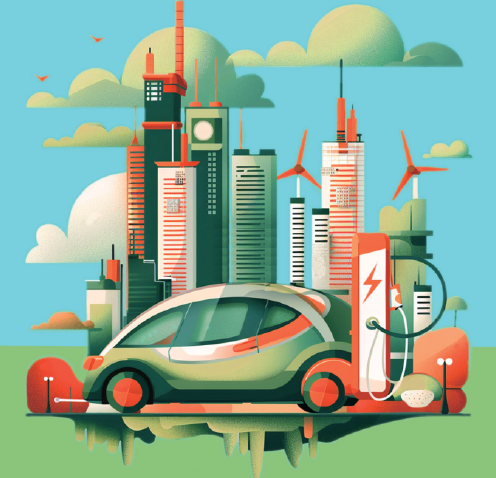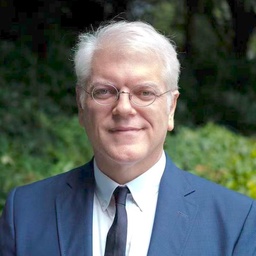近日,我院马奥尼教授在中国日报网发文,谈「美国希望全世界将中国的电动汽车视为一种威胁,而不是一种减排手段」。
内容提要
文章探讨了美国如何将中国的电动汽车定位为潜在威胁,而不是减排工具,揭示了一个错综复杂的国际政治和经济局面。尽管拜登总统重申了电动汽车对于国家和全球福祉的重要性,但除特斯拉外,美国的电动汽车制造商大多缺乏市场竞争力。与此同时,中国正大量生产高质量而价格合理的电动汽车及可再生能源产品,美国却试图阻止这些产品进入其市场,维持对化石燃料的依赖。
批评声音指出,美国以国家安全为由,把中国的电动汽车视作虚构的威胁,目的是保护自身免受中国竞争的影响。有观点认为,美国对中国科技崛起的忧虑背后,是担心这可能对美元在后石油时代全球经济中的地位造成的影响。虽然有专家强调,潜在的安全风险可以通过采取特斯拉在中国市场的策略来缓解,但美国似乎并不寻求切实的解决方案。
进一步的分析表明,美国的措施反映出一种保护主义倾向,目的是保护本国产业并削弱中国在高科技领域的优势。尽管将这些限制性措施描述为对中国保护主义的反击,但中国电动汽车行业的发展实际上是市场竞争的范例,显示了中国企业通过与国际竞争者如特斯拉的直接竞争加速了其发展。
总的来说,对中国电动汽车的限制被看作是出于对竞争的恐惧和保护本土产业的策略,而不是基于对间谍活动或破坏行为的实际担忧。尽管存在限制,预计中国的电动汽车将继续在全球扩张,美国消费者可能最终会发现自己在追赶全球电动车发展趋势上越来越落后。
US wants world to imagine China's EVs as a threat rather than a means to reduce emissions
For decades, the United States has been hostage to domestic oil and automotive industries. It accounts for the highest per capita emissions in the world, and President Joe Biden believes transitioning to electric vehicles is vital for national and even global well-being. The problem, however, is that aside from Tesla, most US EV makers aren't competitive, and even Tesla is too pricey for a lot of consumers. Furthermore, the US lacks the manufacturing capacity, the most advanced battery technologies, and even the capacity to produce a national network of charging stations.
China is mass producing high-quality and affordable EVs, charging stations and renewable energy products, including solar panels and wind turbines. And yet, Washington is doing what it can to prevent US citizens from having the right to buy these products, effectively prolonging their unsustainable dependence on fossil fuels. Why?
It's easy enough to see that the US is afraid of a rising China displacing its traditional dominance in oil and legacy automotive production, and is worried about what happens to the dollar in a post-oil global economy. So it's not surprising that Washington is saying the primary justification for blocking Chinese EVs relates to national security. Nevertheless, the security concerns being hyped are rather spurious, claiming for example that Chinese EVs can be used by the Chinese government for spying and acts of sabotage.
Keep in mind that Chinese EVs don't actually have a presence in the US market given all the discrimination they face and that Chinese EV companies are not State-owned enterprises. Therefore, the keyword here seems to be "imagine", as was repeatedly said by Commerce Secretary Gina Raimondo numerous times in recent remarks. She said imagine if hundreds of thousands EVs made in China — which she described as a "foreign adversary" — were driving on US roads, then "it's not difficult to imagine the security risk this would pose". Even so, she imagines it for us, telling us that we should see Chinese EVs as smartphones on wheels, collecting sensitive data about US drivers, EV cameras recording videos of US infrastructure, warning that "someone in Beijing" might control them remotely, perhaps like enemy drones.
Such risks, even if they did exist, could be easily mitigated, as Tesla did in the Chinese market, as security experts have pointed out. However, real solutions are not wanted in the US. Rather, in an era where the US cries wolf over any Chinese tech, from Huawei to TikTok, no amount of accommodation seems possible because the US always points to the possibility of a ghost in the machine, where the specter haunting the US, we're told, is the Communist Party of China.
What's funny of course is that even Huawei has an EV line now, and one can well imagine the US horror of a Huawei EV on US roads, quietly tracking how many times people secretly visit a Mac-Donald's Drive Thru well past their dinner time, and then selling that information to Taco Bell. One can only assume that some people would like to take such secrets and infidelities to an early grave.
The Chinese position is that the US fears competition, not spying or sabotage, and that the real goal here is US protectionism. Presently US tariffs on Chinese EVs stand at 27 percent. US citizens can qualify for substantial federal income tax credits for purchasing an EV, but only if it or its battery isn't made in China. Further, Biden claims that US protections are warranted to counter Chinese protections, that the Chinese EV industry benefits from Chinese State subsidies and policy supports, and that international EV companies have faced discriminatory practices in China. Ironically, the development of China's EV industry is already emerging as a textbook case study of free market competition. Indeed, the fact that Chinese companies were forced to compete with international companies such as Tesla, which were encouraged to produce and sell in China, has been cited as a key reason why China has emerged as the global leader in EVs after more than a decade of hard work.
Meanwhile, US "experts" argue that China might put its overcapacity to work and start dumping EVs in the US market regardless of tariffs, thereby justifying increasing efforts to keep them out of the market entirely. That's extremely unlikely, but if it happened, then what an incredible boon for US consumers and the environment.
Protectionism aims largely at protecting domestic industries, but in fact, US policy also wants to damage the Chinese economy, above all in areas where it enjoys comparative advantages or anything related to high technology. The US understands that China has substantially closed the technology gap that previously made China vulnerable to foreign aggression and hegemony, emerging in the new era as one of the world's leading technological societies. This is another reason why the US is moving against Chinese EVs and other technology products, including suppressing China's access to advanced chips, part of a broader US strategy aiming to encircle and suppress Chinese modernization overall.
In a difficult campaign for reelection, Biden is trying to appeal to voters in the industrial Midwest, including Michigan, home to many of the big US car companies that have failed to offer competitive EV products. While Biden previously has joined autoworker picket lines during strikes, his policies toward Israel's attacks on Gaza have alienated a huge block Muslim voters residing in Michigan. Meanwhile, former president and current leading Republican candidate Donald Trump has attacked the very idea of climate change as a "communist plot", one designed to transfer the US' automotive and energy dominance to China. We all know where he stands and what will happen if he returns to office.
In short, there are many reasons why the US is afraid of Chinese EVs, and why it will continue to restrict their access to the US market. Nevertheless, Chinese EVs will continue to expand globally, and sooner or later US consumers will find themselves left further behind, stepping on the gas, trying to catch up.



